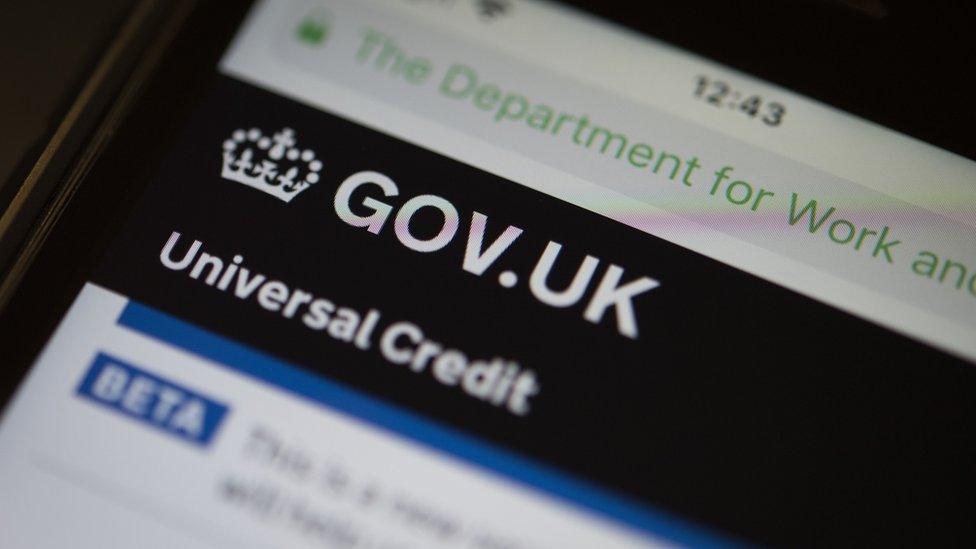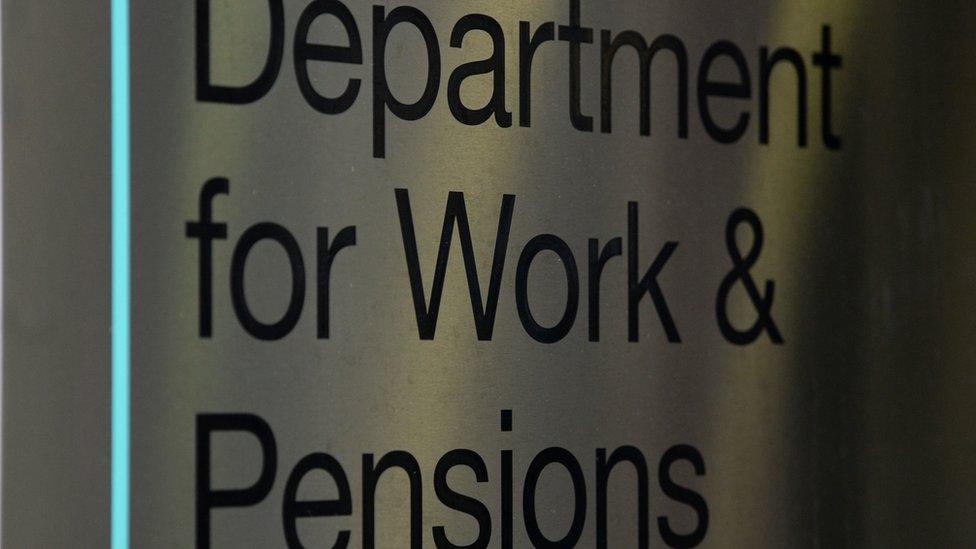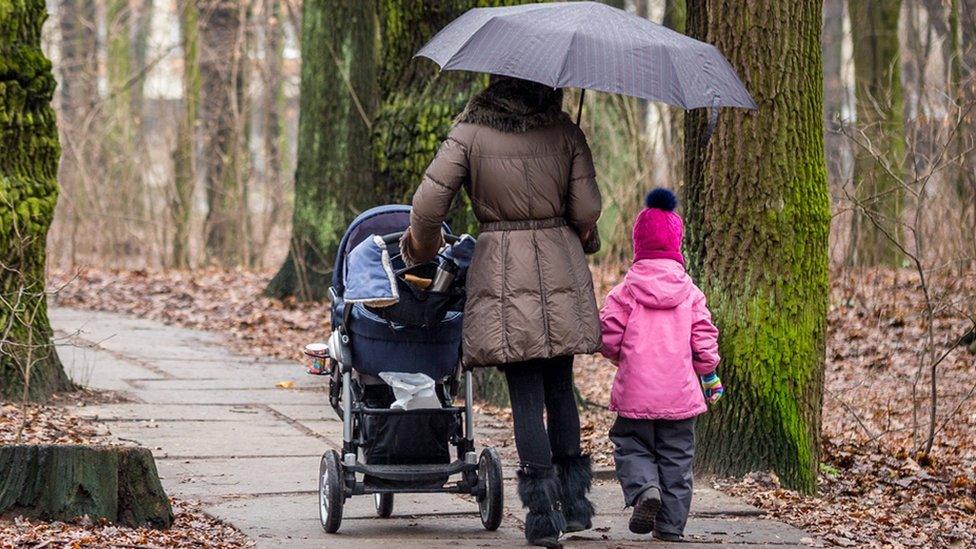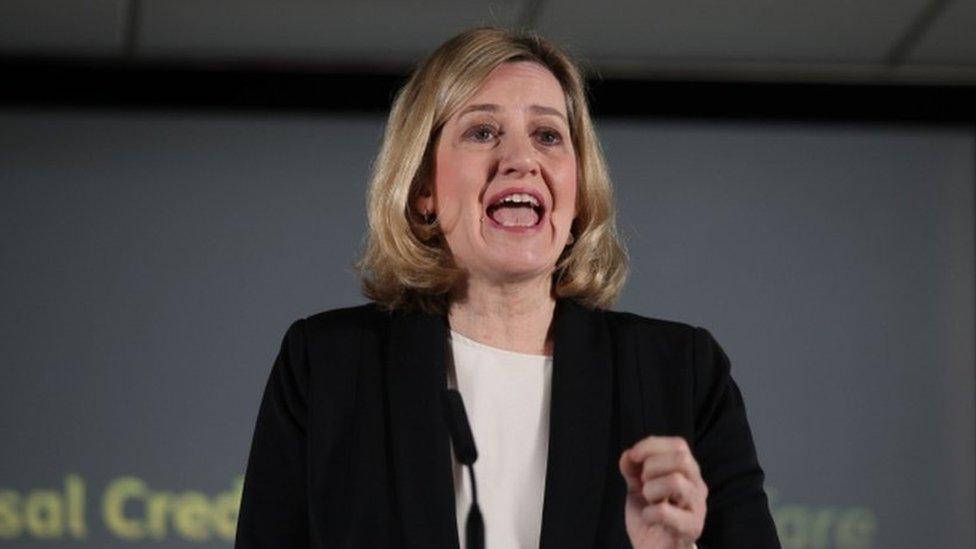'I struggle to get by on universal credit'
- Published

Adele Shelmerdine has struggled since moving to universal credit last year.
The 49-year-old Wirral resident had debts, and says the switch to the new benefits system left her suicidal.
Now a debt charity has called on the government to take account of affordability when assessing claims.
The Department for Work and Pensions said: "We understand the burden that debt can place on people and safeguards are in place to ensure repayments are affordable and sustainable."
Universal credit has proved controversial almost from the beginning, with reports of IT issues, massive overspends and administrative problems.
Last week the government performed another U-turn over the system after the work and pensions secretary ditched plans to extend a benefits cap on families of more than two children.
'I didn't know what to do'
Adele has been on benefits for two decades because of a number of disabilities. She has asthma and back problems, as well as mental health issues.
"There are certain jobs I can't do - I can't sit down for ages or stand up for ages because of my back. I also can't walk far."
She used to be on employment and support allowance (ESA) but moved a year ago to the Wirral from Stockport to escape a flat with no heating and unpleasant neighbours.
"I thought it would be a fresh start for me, but the first thing I had to do was an assessment for universal credit after which my money was cut by around £350 a month.
"I was struggling and didn't know what to do. I used to have a lifestyle, I don't anymore.
"It was just loads of worry. I ended up thinking, what's the point of living?"
She's had to start all over again and try to get by on what she calls "basic money".
"I've got priorities in my life - pay the rent and bills and have food in the cupboards. Anything else is a bonus.
"But I'm stuck in a flat with nowhere to go."
She's now taking steps to tackle her money woes with the help of a debt charity. "I really want to sort things out, but it's a struggle," she said.
Unworkable budgets

Many people on universal credit are acutely suffering, according to debt charity Christians Against Poverty.
It warns that the new welfare system is not taking into account of people's full financial picture.
Chief executive Matt Barlow said: "We are seeing more and more unworkable budgets - people left with £10 a month for food or people who went through insolvency with us but are getting back in touch because they in debt again, due to universal credit.
"The truth is most people find themselves in debt as soon as they start to claim."
'Unworkable deductions'
Problems stem from the multiple deductions made at source which leave people confused, powerless and in constant hardship.
Deductions are routinely made at source for unpaid utility bills, council tax, court fines as well as the repayment of any advance made to help someone through the five-week wait without income during the universal credit application process.
Payment advances given to cover the five weeks without income have to be paid back over 12 months, and from October 2021, that will change to 16 months.
These are allowed to total up to 40% of someone's standard allowance, a figure that will reduce to 30% from October this year. Previously, on legacy benefits, DWP deductions were taken at a maximum of 25%, although other government agencies could also make deductions.
Mr Barlow said: "The changes were announced in the autumn Budget so government realises these deductions are unworkable for people. However, none of this framework takes into the account someone's whole financial picture and that is the key issue."
CAP has called for repayments to be calculated by looking at someone's affordability rather than setting a rigid timeframe.
A DWP spokesperson said: "Our jobcentres can offer budgeting help, signpost people to debt support and set up alternative payment arrangements.
"We have also announced a new partnership with Citizens Advice to deliver universal support, which includes help managing finances."
- Published13 May 2024

- Published11 January 2019

- Published11 January 2019
